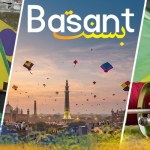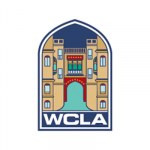Islamabad: In a major milestone for Pakistan’s mining sector, the long-delayed Reko Diq copper and gold project is expected to achieve financial closure by the end of September or early October, senior officials confirmed on Wednesday.
Located in Balochistan’s Chagai district, the project is projected to generate USD 74 billion in free cash flows over its 37-year life, making it a cornerstone of Pakistan’s future economic strategy.
The Annual General Meetings and Boards of Directors of the three state-owned stakeholders — Oil and Gas Development Company Limited (OGDCL), Pakistan Petroleum Limited (PPL) and Government Holdings (Private) Limited (GHPL) — have approved USD 715 million in project costs, bringing the total to USD 7.48 billion. While the increase reflects conservative lender assessments due to inflation, commodity price volatility and contingency requirements, officials said tight cost controls are expected to keep execution close to the original estimate of USD 6.765 billion.
Read: Barrick eyes G7-backed funding for Reko Diq mine
Construction is scheduled to begin in December 2025, with commercial operations targeted for 2028. The financial model is structured on a 50:50 equity-to-debt ratio to balance both local and international participation without excessive leverage. The Reko Diq Mining Company (RDMC), the special-purpose vehicle executing the project, is a joint venture between Barrick Gold Corporation and the governments of Pakistan and Balochistan.
Barrick Gold, the lead operator, holds 50 percent of the project, while the remaining 50 percent is split between the Government of Pakistan (via OGDCL, PPL and GHPL) and the Government of Balochistan, which holds 25 percent, including a 10 percent free-carried interest and a 15 percent fully funded share. This arrangement ensures local participation and revenue sharing while shielding Balochistan from financial liability.
The project has secured significant international financing. The International Finance Corporation (IFC), part of the World Bank Group, has committed USD 700 million, including a USD 400 million subordinated loan backed solely by the Pakistani state-owned enterprises’ balance sheets, without sovereign guarantees — a breakthrough in structuring large-scale financing.
Additionally, the Asian Development Bank (ADB) has approved a USD 300 million loan, its first mining-sector financing in over four decades, along with a USD 110 million credit guarantee to support Balochistan’s stake. Talks with US EXIM Bank, Export Development Canada, and Japan Bank for International Cooperation (JBIC) are also in advanced stages.
In parallel, RDMC has pledged USD 350–400 million in bridge financing for Pakistan Railways to upgrade its Main Line-2 (ML-2) and Main Line-3 (ML-3), ensuring mineral exports can move efficiently to Port Qasim ahead of the mine’s operations.
Read: Donor commitments for Reko Diq exceed USD 5 bn
“This isn’t just a mining project — it’s a transformational economic engine for Pakistan,” a senior official said, adding that once financial closure is finalised, contractor mobilisation, equipment procurement and site development will begin, paving the way for one of the country’s most significant public-private partnerships.








